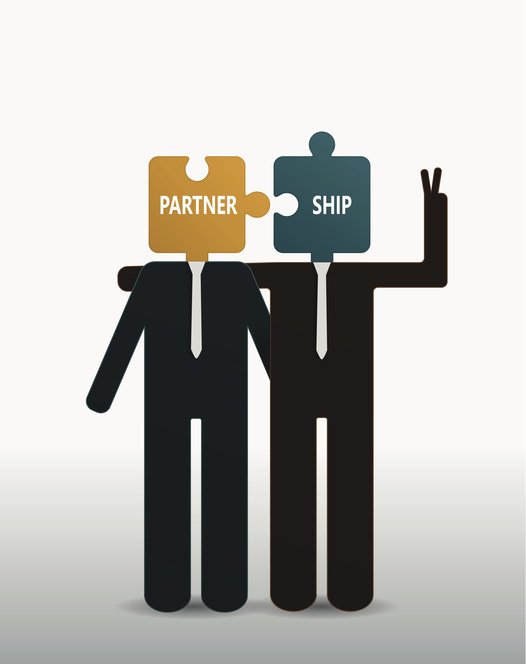Trust and respect: tw

o words that are imperative for a mutually rewarding outsourcing relationship. And so it is for an optimal 3PL experience. It seems easy, right?
Wrong. More often than not, outsourcing relationships that have both trust and respect are the exception, not the rule. Micromanagement and constant price pressure from shippers acting as overseers strains the relationship. 3PLs should be treated as partners, and when they are, more value is delivered and more efficient business processes are carried out.
Dr. John C. Langley, Ph.D. of Supply Chain and Information Systems at Penn State, stated in his State of Logistics Outsourcing Study that “effective client-3PL relationships exhibit a mutual commitment to the creation of value for both parties and to the overall supply chain. Too much emphasis on the ‘price’ of the 3PL’s services makes it challenging to focus on innovation and programs that drive savings and improved performance.”
How can shippers improve their 3PL experience?
Upgrade your proposal request
Include the operational data, in detail. This is essential for a thorough analysis and response. 3PL’s can spend up to $60,000 on developing a response, just to lose it. For this reason, they may choose not to pursue a project whose proposal doesn’t contain the comprehensive data needed to make an informed proposal. Accuracy is also key. If a 3PL underprices a project because of inaccurate data, it’s going to hurt their budgets and performance.
Set realistic expectations
If your company has had the same problem year after year, trial after trial, do not expect that a 3PL will immediately solve your problem. Though they’re experts, they’re going to face similar challenges as you when trying to fix the issue. Set realistic goals and expectations from the start, then collaborate to solve the problem.
State the terms of the contract
The contract can never be an afterthought. Billing and services disputes are lethal to relationships. Yes, contracts can be lengthy and daunting, but not as lengthy and daunting as litigation. Clearly state the services that you expect the 3PL to perform, how the operational performance will be measured, and what the payment terms are, including how they’ll be calculated.
Use appropriate resources to manage the relationship
According to Ernst & Young, “a common failure of outsourcing companies is insufficient resources and rigor dedicated to communication, change management, and performance management.” It may seem like outsourcing takes away the daily motions of logistics execution, but in reality, it adds a need for management in other areas. Define the requirements of a 3PL manager, and then assign someone to this role. Most 3PLs prefer having one go-to person, and having the 3PL work with you, not for you, is beneficial to the partnership.
Set a timeframe for regular communication
This is absolutely imperative to stay in sync with your 3PL. Stick to the communication plan with little deviation. Whether it’s a daily call or a monthly meeting, this step needs to be looked at as a mandatory requirement.
Focus on metrics that matter
There is no end to the amount of data that can be analyzed and reported. But what good is the data if it doesn’t lead to productivity gains, cost cuts, and customer service improvements? You must decide to analyze a focused set of KPIs. Most of the metrics that matter can be automatically recorded from the WMS, so the 3PL shouldn’t be wasting time making reports. Side note: don’t ignore the financial measures – those are imperative to your CFO.

Share your long-term business strategies
Countless employee motivation strategies show that people want to do meaningful work. This doesn’t exclude 3PLs. Helping companies grow and flourish is in their
goals, and shippers benefit greatly by providing them with the tools they need to envision a supply chain that evolves to support their business plan. Not to mention the fact that sharing this type of information requires a huge amount of trust from both parties. In the end, it will empower each team and lead to more insightful thinking and better performance.
Involve your 3PL in collaborative supply chain efforts
One food manufacturer struggled with omnichannel fulfillment and invited its 3PL to a one-day summit to collaborate on ideas to fix the issue. Another held a similar meeting but chose to leave their 3PL out and provide them with a summary and tasks after the fact. Obviously, we can assume which decision led to a better outcome. Don’t ever discredit the fact that 3PLs work with a huge variety of shippers and encounter different challenges every day. Because this is true, they can offer invaluable advice and knowledge, which will only benefit you, and your 3PL experience.
Read more: 8 Fascinating Statistics from Shippers about 3PLs, 2 Simple Reasons 3PLs Have Remained Extremely Popular.Let the Experts Optimize Your LTL
Contact Us Now
